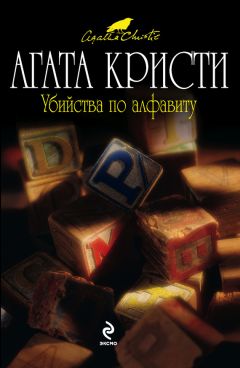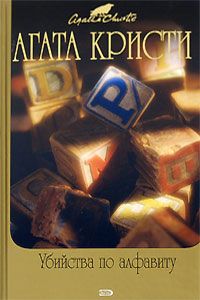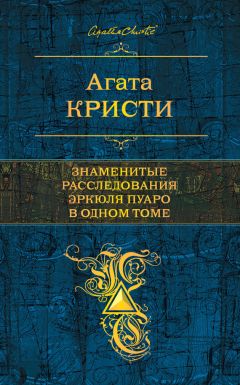Agatha Christie - Английский язык с Агатой Кристи. Убийства по алфавиту
vouch [vautʃ], occurrence [ǝˈkǝ:rǝns], Hercule Poirot [ˈɛǝkju:l ˈpwɑ:rǝʋ]
I wish to assure my readers that I can vouch for the occurrences related in these chapters. If I have taken a certain poetic license in describing the thoughts and feelings of various persons, it is because I believe I have set them down with a reasonable amount of accuracy. I may add that they have been "vetted" by my friend Hercule Poirot himself.
In conclusion (в заключение), I will say that (я скажу, что) if I have described at too great length (если я описал в слишком большом объеме: «длине») some of the secondary personal relationships (некоторые из второстепенных личных отношений) which arose (которые возникли; to arise — возникать; появляться) as a consequence of this strange series of crimes (как последствие этой странной серии преступлений), it is because the human and personal element can never be ignored (это /случилось/ потому, что человека и человеческий фактор нельзя проигнорировать: «человеческий и личностный элемент никогда не может быть проигнорирован»). Hercule Poirot once taught me in a very dramatic manner (Эркюль Пуаро однажды научил меня в очень драматической манере; to teach — учить, обучать) that romance can be a by-product of crime (что романтические отношения могут быть побочным продуктом преступления; romance — роман; любовные отношения).
consequence [ˈkɔnsɪkwǝns], series [ˈsɪǝri:z], taught [tɔ:t]
In conclusion, I will say that if I have described at too great length some of the secondary personal relationships which arose as a consequence of this strange series of crimes, it is because the human and personal element can never be ignored. Hercule Poirot once taught me in a very dramatic manner that romance can be a by-product of crime.
As to the solving of the A.B.C. mystery (что касается решения тайны Эй-би-си; A.B.C. — первые буквы английского алфавита), I can only say (я только могу сказать) that in my opinion (что, по моему мнению) Poirot showed real genius in the way (Пуаро проявил настоящий гений в том, как; way — путь; метод, средство, способ, образ действий) he tackled a problem (он взялся за проблему; to tackle — привязывать, укреплять; с усердием приниматься /за что-л./; пытаться найти решение) entirely unlike any (совершенно не похожую ни на одну /из тех/) which had previously come his way (которые раньше встречались /на/ его пути).
mystery [ˈmɪst(ǝ)rɪ], genius [ˈdʒɪnjǝs], previous [ˈpri:vjǝs]
As to the solving of the A.B.C. mystery, I can only say that in my opinion Poirot showed real genius in the way he tackled a problem entirely unlike any which had previously come his way.
I. The Letter
(письмо)
It was in June of 1935 (это было в июне тысяча девятьсот тридцать пятого /года/) that I came home from my ranch in South America (когда я приехал домой с моего ранчо в Южной Америке; to come — приходить; прибывать) for a stay of about six months (примерно на шесть месяцев: «для пребывания в течение примерно шести месяцев»). It had been a difficult time for us out there (там для нас были трудные времена). Like everyone else (как и все), we had suffered from world depression (мы пострадали от мирового кризиса). I had various affairs to see to in England (в Англии мне нужно было заняться разными делами: «у меня были различные дела /чтобы о них/ позаботиться в Англии»; to see to — присматривать за чем-л., кем-л., заботиться о чем-л., ком-л.) that I felt could only be successful (которые, /как/ я чувствовал, могли быть успешными только; to feel — чувствовать) if a personal touch was introduced (при моем личном участии: «если личное касание будет применено»; to introduce — вводить; знакомить; вносить). My wife remained to manage the ranch (моя жена осталась управлять ранчо).
ranch [ræntʃ], various [ˈvɛǝrɪǝs], affair [ǝˈfɛǝ]
It was in June of 1935 that I came home from my ranch in South America for a stay of about six months. It had been a difficult time for us out there. Like everyone else, we had suffered from world depression. I had various affairs to see to in England that I felt could only be successful if a personal touch was introduced. My wife remained to manage the ranch.
I need hardly say (едва ли мне нужно говорить) that one of my first actions on reaching England (что, одно из моих первых действий по прибытии в Англию) was to look up my old friend (было навестить моего старого друга; to look up — разг. навещать кого-л.), Hercule Poirot (Эркюля Пуаро).
I found him installed (я обнаружил его расположившимся; to find — находить; to install — расположиться; устанавливать) in one of the newest type of service flats in London (в Лондоне, в одной из квартир новейшего типа с /гостиничным/ обслуживанием). I accused him (я обвинил его /в том, что он/) (and he admitted the fact (и он признал этот факт)) of having chosen this particular building (выбрал именно это здание; to choose — выбирать) entirely on account of its strictly geometrical appearance and proportions (исключительно на основании его строгого геометрического вида и пропорций).
install [ɪnsˈtɔ:l], particular [pǝˈtɪkjulǝ], appearance [ǝˈpɪǝrǝns]
I need hardly say that one of my first actions on reaching England was to look up my old friend, Hercule Poirot.
I found him installed in one of the newest type of service flats in London. I accused him (and he admitted the fact) of having chosen this particular building entirely on account of its strictly geometrical appearance and proportions.
"But yes, my friend (ну да, мой друг), it is of a most pleasing symmetry (дело как раз в приятной симметрии: «оно самой приятной симметрии»), do you not find it so (вы так не находите)?"
I said that I thought (я сказал, что я думал; to say — говорить, сказать; to think — думать) there could be too much squareness (что оно, вероятно, слишком квадратное: «там могло быть слишком много квадратности»; square — квадрат; площадь) and, alluding to an old joke (и, намекая на старую шутку; to allude — ссылаться; намекать), I asked (я спросил) if in this super-modern hostelry they managed to induce hens to lay square eggs (не удалось ли им в этой сверхсовременной гостинице заставить куриц нести квадратные яйца: «откладывать квадратные яйца»; to induce — заставлять, вынуждать)?
Poirot laughed heartily (Пуаро рассмеялся от всего сердца: «сердечно»).
"Ah, you remember that (а, вы помните это)? Alas (увы)! No (нет) — science has not yet induced the hens to conform to modern tastes (наука еще не вынудила куриц соответствовать современным вкусам), they still lay eggs of different sizes and colours (они все еще несут яйца разных размеров и цветов)!"
square [skwɛǝ], hostelry [ˈhɔstǝlrɪ], science [ˈsaɪǝns]
"But yes, my friend, it is of a most pleasing symmetry, do you not find it so?"
I said that I thought there could be too much squareness and, alluding to an old joke, I asked if in this super-modern hostelry they managed to induce hens to lay square eggs?
Poirot laughed heartily.
"Ah, you remember that? Alas! No — science has not yet induced the hens to conform to modern tastes, they still lay eggs of different sizes and colours!"
I examined my old friend with an affectionate eye (я осмотрел моего старого друга дружелюбным взглядом; affection — любовь, чувство близости, привязанность). He was looking wonderfully well (он выглядел удивительно хорошо) — hardly a day older (едва ли на день старше) than when I had last seen him (чем, когда я видел его в последний раз; to see — видеть).
"You're looking in fine fettle, Poirot," I said (вы хорошо выглядите: «вы выглядите в отличном состоянии», Пуаро, — я сказал; fettle — положение, состояние). "You've hardly aged at all (вы вовсе едва постарели; age — возраст; старость; век). In fact (фактически), if it were possible (если бы это было возможно), I should say (я бы сказал) that you had fewer grey hairs than (что у вас меньше седых волос, чем; grey — серый; седой) when I saw you last (когда я вас видел в последний раз; to see)."




